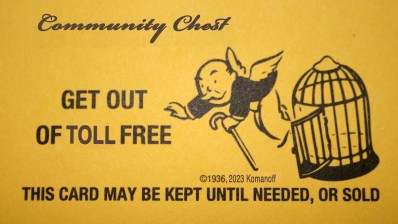Another Free-Market Argument for Congestion Pricing
An opinion piece in today’s New York Sun addresses the congestion-pricing incentives laid out in the Bush Administration’s new budget proposal. The article, by Diana Furchtgott-Roth, a former chief economist at the US Department of Labor who is now with the conservative Hudson Institute, argues that "the only effective way to reduce traffic congestion is to use pricing," and that "Americans rely on prices for a
stable supply of food, clothes, water, energy, and telecommunications.
Why should roads be an exception?"
Citing Singapore, Oregon, and California as potential models for different types of variable road pricing, Furchtgott-Roth attempts to address objections from both the left and the right:
Some on the political left claim tolls are unfair to lower-income drivers. To resolve this, Alameda County, Calif., and Atlanta, Ga., are experimenting with Fast and Intertwined Regular lanes. Drivers in fast lanes pay tolls, and drivers in slow lanes receive credits. Such credits can be used toward payment of tolls for future trips, or for other transit-related activities. In New York, credits could be given to lower-income drivers through license plate numbers.
But it’s not tolls that are particularly detrimental to the poor, because they can be rebated – it’s congested roads. Congestion lowers mobility, making it harder to travel to much needed jobs. Converting some highway lanes to toll lanes gives low-income drivers a valuable choice of more time. A waiter on his way to pick up a child from day care might find a toll cheaper than a late fee.
An objection from the right is that President Bush is breaking his no-tax pledge. However, like parking charges, tolls are not a tax. They are a user fee for road space. Toll revenues can be used not only to ensure that road space is not overly crowded and available when people most need to use it, but also to finance road improvements. One example is new truck-only highways, such as a new tunnel from Brooklyn to New Jersey.
That waiter example isn’t exactly compelling. But judging from the debate that’s been going on here all week over the congestion-pricing question, it seems Streetsblog readers will have their own thoughts on Ms. Furchtgott-Roth’s theories. Anyone care to discuss?



